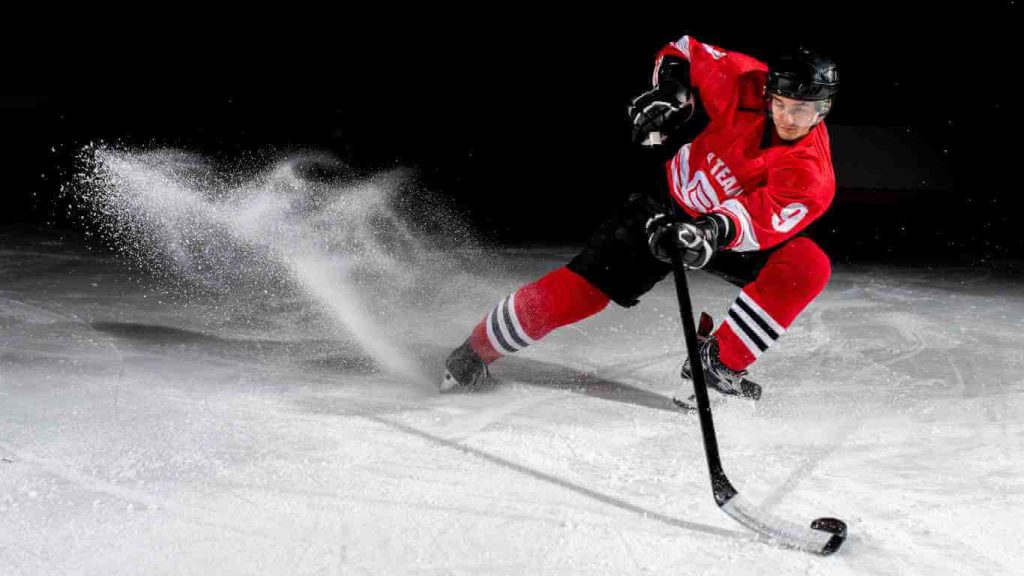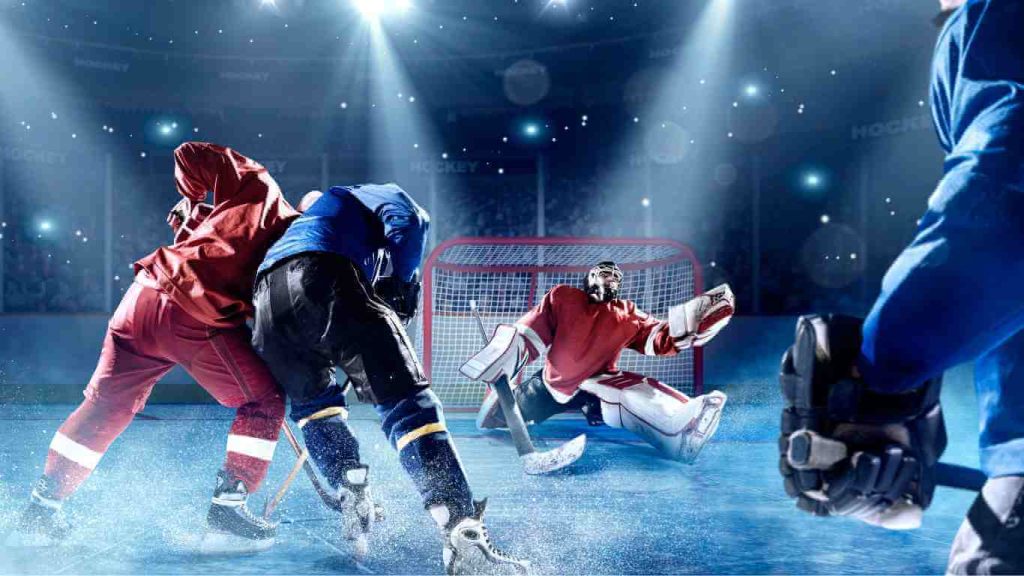
Defense is a crucial position in hockey, and skilled defensemen are invaluable assets to their teams. A skilled defenseman excels in defensive positioning, protects the net, initiates breakouts, makes accurate passes, controls play, blocks shots, makes quick decisions, and more.
As a defenseman, your responsibilities extend beyond preventing goals; you play a vital role in transitioning the puck and initiating offensive plays.
In this article, I will explore various aspects of improving your defense skills in hockey. From understanding your responsibilities as a defenseman to enhancing your positioning, I will provide you with valuable tips to take your defensive game one step ahead. Let’s know in detail about how to improve your defense skills in hockey!
Understanding the Positions in Hockey: A Closer Look at Each Role
Table of Contents
Each player has a specific position that contributes to the team’s overall strategy and success. Let’s take a closer look at the various positions and the responsibilities associated with each.
- Center:
The center is often considered the “quarterback” of the team, responsible for both offensive and defensive duties. Positioned in the middle of the ice, the center takes faceoffs, initiates offensive plays, and plays a key role in puck distribution. They are versatile players who excel in playmaking, scoring goals, and providing defensive support.
- Goalie:
The goalie is the last line of defense and plays a critical role in preventing the opposing team from scoring goals. Positioned in front of the net, the goalie must possess exceptional reflexes, agility, and positioning skills to make saves and control rebounds. Their primary objective is to stop shots on goal and provide a solid foundation for the team’s defensive play.
- Winger:
There are two types of wingers in Ice hockey: left wing and right wing. Wingers primarily focus on offensive play, utilizing their speed, agility, and shooting skills to generate scoring opportunities. They work in tandem with the center, providing support along the boards, creating space, and finishing plays by shooting on goal. Wingers also contribute to defensive responsibilities by backchecking and covering opposing defensemen.
- Defenseman:
Similar to wingers, defensemen are also categorized as left defense and right defense. Defensemen play a critical role in protecting the team’s net and preventing the opposing team from scoring. Positioned in their team’s defensive zone, they use their physicality, positioning, and stick-checking skills to impede the opponent’s progress and clear the puck. Defensemen also contribute to the team’s offense by initiating breakouts, making accurate outlet passes, and providing support to the forwards.
Responsibilities As A Defenseman:

When it comes to Ice hockey, defensemen hold a pivotal role in protecting the team’s net from the opponent’s onslaught. While there are various responsibilities a defenseman undertakes, their primary objective remains consistent: prevent the opposing team from securing quality shots on goal. An exceptional defenseman embodies an array of qualities that contribute to their team’s success. Let’s explore the fundamental skills and attributes that elevate defensemen to new heights on the ice.
- Solid Defensive Positioning:
Maintaining impeccable defensive positioning is the cornerstone of a defenseman’s game. By positioning themselves strategically between the puck carrier and the net, defensemen can impede the opponent’s progress and limit their scoring opportunities. A strong defensive stance, coupled with effective gap control, ensures that defensemen can prevent breakaway attempts and deny the opposition time and space to execute their offensive plays.
- Battle in the Corners:
Winning battles in the corners is a crucial aspect of a defenseman’s duties. By engaging physically with opposing forwards, defensemen can protect the puck and maintain possession for their team. Tenacious battles in the corners often lead to successful breakouts and offensive opportunities for their team.
- Protect the Front of the Net:
Being the last line of defense, defensemen must excel at protecting the front of the net. This involves clearing opponents from the crease, tying up sticks, and disrupting scoring chances. By effectively safeguarding their goalie, defensemen ensure a solid defensive foundation.
- Proficient Breakouts:
Initiating breakouts from the defensive zone is an essential skill for defensemen. By making clean, crisp outlet passes, they help transition the play from defense to offense. Accurate breakout passes facilitate smooth and efficient offensive rushes, providing their team with the upper hand in the game.
- Excellent Skating Abilities:
Superior skating skills, particularly in backward skating, are vital for defensemen. The ability to maintain speed and agility while moving backward allows defensemen to stay with attacking players, close gaps quickly, and defend against odd-man rushes effectively. Exceptional footwork enhances their overall defensive capabilities.
- Powerful Shooting:
A well-rounded defenseman possesses a formidable shot from a distance. By unleashing accurate and powerful shots, they can contribute to offensive plays, create scoring opportunities, and keep opposing goalies on their toes. Defensemen who can consistently find the back of the net from the blue line add an extra dimension to their team’s attack.
- Control of Opponent’s Play:
Controlling the play when the other team has possession is a hallmark of an elite defenseman. By utilizing angling and steering techniques, they can force opponents into less dangerous areas of the ice, disrupt passing lanes, and limit scoring chances. Intelligent defensive play gives the defenseman a distinct advantage in anticipating the opposition’s moves.
- Shot Blocking:
Fearless shot-blocking is a crucial skill for defensemen. Putting their bodies on the line to prevent shots from reaching their goalie showcases their commitment to the team’s success. The willingness to sacrifice demonstrates their dedication to defense and inspires their teammates.
- Effective Communication:
Clear and concise communication with teammates is vital for cohesive defensive play. Defensemen must effectively communicate with their partners, goaltenders, and forwards to ensure seamless defensive coverage, successful breakouts, and timely transitions. Strong communication enhances on-ice coordination and fosters a united defensive front.
- Quick Decision-Making:
Defense is a thinking position, requiring defensemen to evaluate the play and make split-second decisions. By rapidly assessing the situation, defensemen can react appropriately, either by engaging in physical battles, making a breakout pass, or blocking shots. Their ability to make swift and accurate decisions under pressure is invaluable to their team’s success.
What Skills Should You Have As A Defenseman?
A skilled defenseman in ice hockey must excel in both offensive and defensive aspects of the game, whether they possess the puck or not. Let’s explore the essential skills required for a defenseman in each scenario:
- With Puck:
Puck Handling: Defensemen need solid puck-handling skills to maintain possession, make accurate passes, and navigate through opponents’ pressure. Good stickhandling and the ability to make smart decisions with the puck are crucial.
Passing Accuracy: Precise passing is vital for defensemen when initiating breakouts, executing quick transitions, and setting up offensive plays. The ability to deliver crisp, on-target passes under pressure is essential for effective team play.
Offensive Awareness: Defensemen with the puck must possess strong offensive instincts, recognizing scoring opportunities and joining the rush to create additional offensive threats. They contribute by providing an extra option in the attack while maintaining defensive responsibilities.
- Without Puck:
Defensive Positioning: Solid defensive positioning is paramount for a defenseman without the puck. Maintaining a good gap between opponents, angling attackers toward the boards, and covering passing lanes are key aspects of defensive positioning.
Stick Checking: Defensemen must have proficient stick-checking skills to disrupt opponents’ plays, poke-check the puck away, and prevent scoring opportunities. Proper timing, stick placement, and active stick work are crucial for defensive success.
Shot Blocking: Defensemen without the puck often sacrifice their bodies to block shots. A fearless approach, proper technique, and excellent timing are required to prevent shots from reaching the net and protect the goalie.
Defensive Awareness: Strong defensive awareness involves reading plays, anticipating opponents’ moves, and making quick decisions. Defensemen must identify threats, provide support to teammates, and make intelligent defensive choices.
How to Improve Your Defense Skills in Hockey: Tips
If you would like to play well, here are some tips for you to have a look at. Let’s check them at a glance.
- Improve Your Hockey IQ Through Shoulder Checks:
Developing good situational awareness is crucial for defensemen. Regularly incorporating shoulder checks into your game will allow you to keep track of opponents, anticipate plays, and make smart decisions with the puck. Practice turning your head and scanning the ice without losing focus on your defensive responsibilities.
- Achieve Higher Levels of Physical Strength:
Defensemen need to be strong and physically capable to win battles in the corners, clear the front of the net, and delivering effective body checks. Focus on strength training exercises that target core stability, upper body strength, and leg power to enhance your physicality on the ice. Incorporate exercises such as squats, lunges, push-ups, and planks into your training regimen.
- Puck Play Ability:
Strong puck-play skills are essential for defensemen. This includes making clean breakouts, executing crisp passes, and controlling the puck effectively in all situations. Focus on improving your puck control, passing accuracy, and decision-making abilities. Practice various puck control drills, such as carrying the puck through cones or making breakout passes under pressure, to enhance your puck playability.
- Improve Stick-handling In Tight Spaces:
Defensemen often find themselves in situations where they need to handle the puck under pressure. Practicing stick-handling drills in tight spaces will improve your puck control and enable you to make quick, accurate passes to your teammates. Set up obstacle courses or incorporate stick-handling drills into your off-ice training routine to develop your skills.
- Communication:
Effective communication with your teammates is crucial for successful defensive play. Constantly communicate with your partner, goaltender, and forwards to ensure everyone is on the same page, especially during defensive zone coverage and transitions. Use clear and concise verbal and non-verbal cues to relay information and coordinate defensive responsibilities.
- Situational Puck Shooting Drills:
Defensemen are expected to contribute to the offense by taking shots from the point. Working on your shooting accuracy, power, and ability to get shots through traffic will make you a more effective offensive threat from the blue line. Set up shooting drills that simulate game situations, such as shooting through screens or taking one-timers, to improve your shooting skills.
FAQs
- How do I get better at defense in Ice hockey?
To improve your defense Ice hockey skills, focus on defensive positioning, stick checking, body checking, skating and mobility, offensive contributions, game awareness, and hockey IQ. Practice regularly and study the game to enhance your skills.
- What is the weak side defenseman in Ice hockey?
The weak side defenseman refers to the defenseman positioned on the side opposite to where the puck is located. They provide support, cover defensive gaps, and maintain a balanced defensive structure while the puck is on the strong side of the ice.
- How do you become a good offensive defenseman in Ice hockey?
To become a good offensive defenseman, develop strong puck-handling and passing skills, improve your shooting accuracy, and understand when to join the rush. Maintain defensive responsibilities while contributing to offensive plays.
Final Words
Improving your defense skills in Ice hockey requires a combination of technical ability, situational awareness, physical strength, and effective communication. By understanding your responsibilities as a defenseman, and honing your positioning, you can elevate your game to new heights.
Besides, think about incorporating tips such as shoulder checks, physical training, stick-handling drills, situational shooting, puck play, and communication. Remember, continuous practice and a willingness to learn and adapt will enable you to become a standout defenseman and a valuable asset to your team.
Our More Resources: